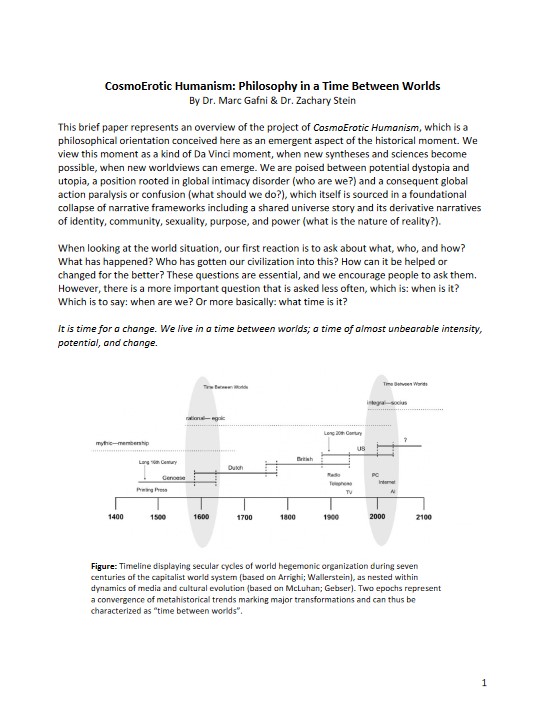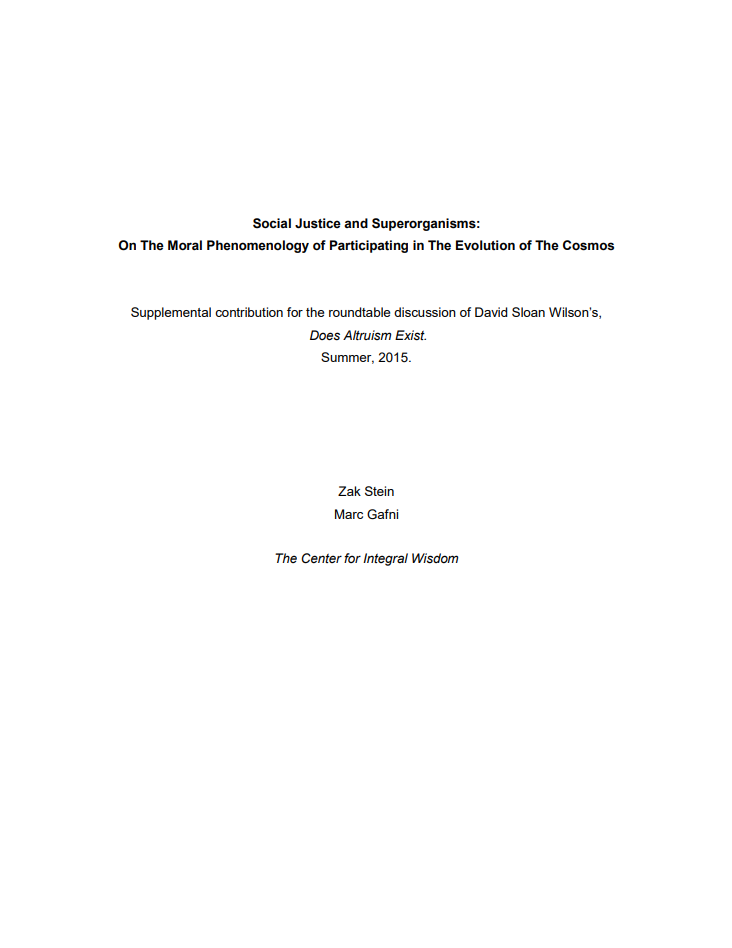Dr. Marc Gafni & Dr. Zachary Stein: CosmoErotic Humanism – Philosophy in a Time Between Worlds
This brief paper (2020) represents an overview of the project of CosmoErotic Humanism, which is a philosophical orientation conceived here as an emergent aspect of the historical moment. We view this moment as a kind of Da Vinci moment, when new syntheses and sciences become possible, when new worldviews can emerge. We are poised between potential dystopia and utopia, a position rooted in global intimacy disorder (who are we?) and a consequent global action paralysis or confusion (what should we do?), which itself is sourced in a foundational collapse of narrative frameworks including a shared universe story and its derivative narratives of identity, community, sexuality, purpose, and power (what is the nature of reality?).
When looking at the world situation, our first reaction is to ask about what, who, and how? What has happened? Who has gotten our civilization into this? How can it be helped or changed for the better? These questions are essential, and we encourage people to ask them. However, there is a more important question that is asked less often, which is: when is it? Which is to say: when are we? Or more basically: what time is it?
It is time for a change. We live in a time between worlds; a time of almost unbearable intensity, potential, and change.

Figure: Timeline displaying secular cycles of world hegemonic organization during seven centuries of the capitalist world system (based on Arrighi; Wallerstein), as nested within dynamics of media and cultural evolution (based on McLuhan; Gebser). Two epochs represent a convergence of metahistorical trends marking major transformations and can thus be characterized as “time between worlds”.




